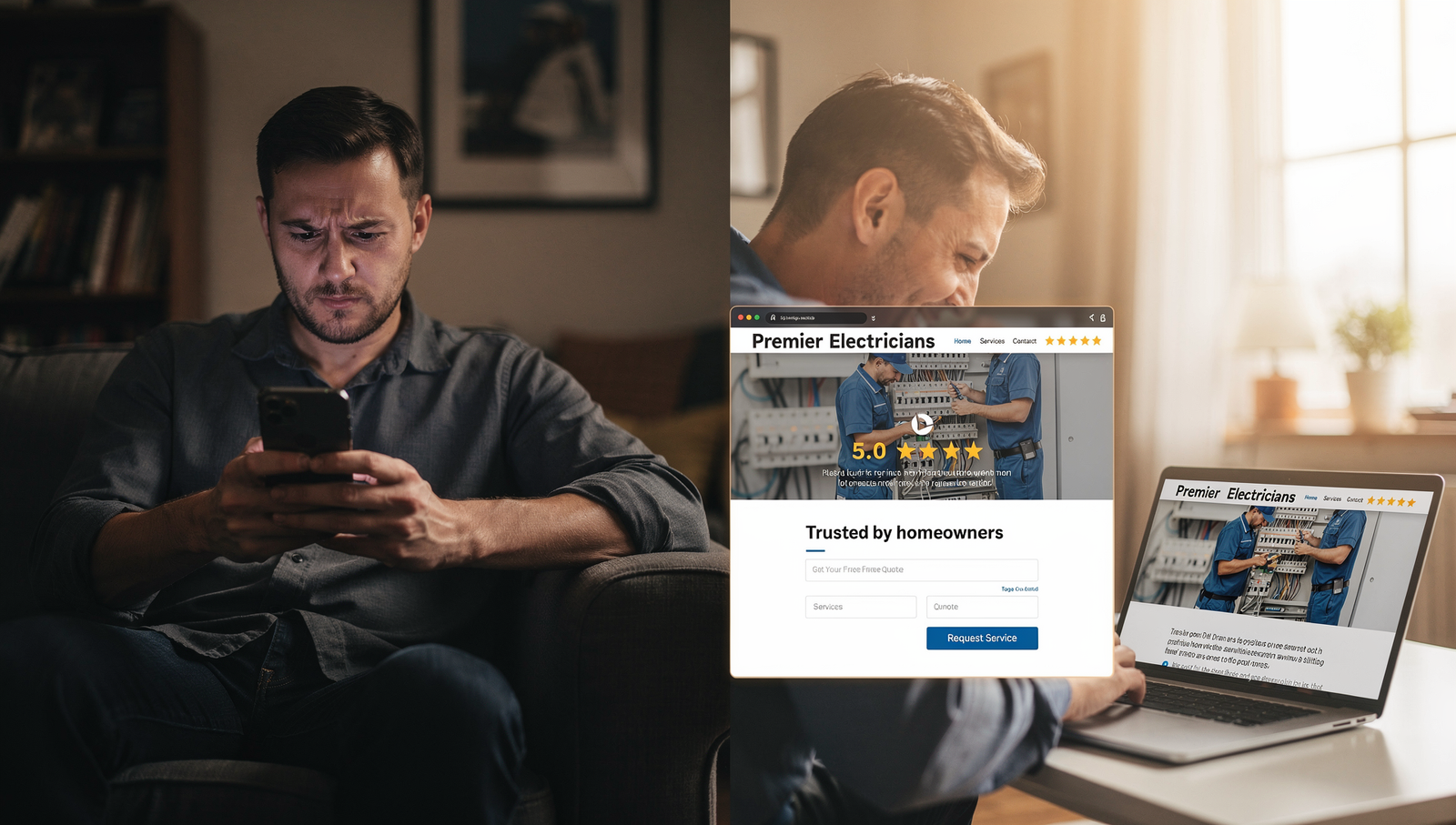1 Negotiation Strategy That Shuts Down Lowball Offers
A listing agent we work with used these exact negotiation tactics and turned a 15% lowball offer into a deal within $5,000 of asking.

Want More Clients Fast?
Steal This Website Rescue Kit to Get More Clients, More Calls, and More Sales on Autopilot
If you’ve ever faced a buyer who submits an offer that’s tens of thousands below asking, you know the frustration. Real estate negotiation strategies for lowball offers are about more than just protecting your seller’s bottom line. They’re about responding with professionalism, building trust, and guiding the deal back to fair ground. Let’s dive into the practical steps you can take to master these situations.
Real Estate Negotiation Strategies for Lowball Offers
Lowball offers happen for many reasons. Sometimes buyers are testing the waters, hoping desperation will drive a discount. Other times, they’re working with outdated data or simply don’t understand the market. Your job as a realtor is to respond in a way that keeps negotiations alive while protecting your client’s interests.
Here are proven strategies you can use.
Start with Professional Composure
The first rule: don’t take it personally. A low offer isn’t an insult to your seller’s home, even if it feels like one. It’s often just a tactic.
Responding calmly shows both the buyer and their agent that you’re not rattled. A simple, professional reply could be:
“Thanks for your offer. While this is below what we expected, let’s explore if there’s room to meet in the middle.”
That tone keeps the door open instead of slamming it shut.
Use Data to Reframe Value
Buyers may undervalue a property because they’re comparing it to the wrong comps. This is where you shine as the local expert.
Show them:
Recent comparable sales within a mile
Upgrades the seller has invested in
Market trends, like average days on market and current supply levels
For example:
“Three homes with similar square footage sold in the past 90 days for within 2 percent of our asking price. That data supports where we’re positioned.”
Tools from our guide to the Best Free Tools for Realtors can make pulling this data quick and professional.
Counter with Strength, Not Anger
Lowball offers are rarely the buyer’s final position. This is why you counter instead of rejecting outright.
Strategies include:
Reduce the discount: If they’re $40,000 below, counter with $10,000–$15,000 under asking.
Focus on terms: Adjust contingencies, closing dates, or repairs instead of price.
Highlight urgency: Point out multiple showings or interest from other buyers.
A confident counter keeps negotiations alive while signaling you’re serious.
Scenario Example: The $50,000 Lowball
Buyer: “We’d like to offer $350,000 for this $400,000 property.”
Realtor: “I appreciate you submitting an offer. Based on comps, $350,000 isn’t reflective of market value. However, my sellers are willing to counter at $390,000 with a quick closing date. That’s a fair balance given the upgrades and location.”
Notice how this response is polite but firm. It reframes value without killing momentum.

Leverage Psychology in Negotiation
Buyers often want to feel like they’re “winning.” You can strategically give them small concessions without hurting your seller.
Offer to include appliances or a home warranty.
Suggest a flexible move-in date.
Emphasize savings in other areas, like recent major repairs.
These concessions make the buyer feel heard, while your seller still walks away with a strong deal.
Show Them the Bigger Picture
Instead of focusing only on the price, highlight long-term benefits.
Equity growth: “Homes in this neighborhood have appreciated 7 percent annually.”
Lifestyle factors: “You can’t put a price tag on the school district or the walkability here.”
Monthly payment impact: “The difference between your offer and the seller’s counter is about the cost of a daily coffee when spread across your mortgage.”
Shifting the lens often makes buyers reconsider their stance.
Real Estate Negotiation Strategies for Lowball Offers in Competitive Markets
In a hot market, lowball offers stand out as unrealistic. Use this to your advantage:
Share stories of recent multiple-offer scenarios.
Show data on homes going above list price.
Politely note that the seller may prioritize buyers who are more serious.
This keeps pressure on the buyer without burning bridges.
Tools That Help You Negotiate Stronger
Great negotiation isn’t just about conversation. It’s about preparation.
CRMs: Keep all comps, client notes, and buyer data organized (see our guide to the Top 5 Best CRMs for Realtors).
Landing pages: Use property-specific pages with virtual tours to showcase value (learn more in Real Estate Landing Page Optimization).
Email marketing: Follow up with buyer agents professionally (see Email Marketing for Real Estate Agents).
When your systems are sharp, your confidence in negotiations grows.
Why Your Online Presence Matters in Negotiations
Believe it or not, how you present yourself online influences how seriously buyers take you offline.
A professional website signals authority and success.
Blogs on topics like How to Attract High-End Sellers Online help you position yourself as an expert.
Local SEO tactics from How to Rank Higher on Google Maps ensure buyers find you before anyone else.
At Digital Dream Homes, we build realtor websites that give you that authority before negotiations even start.
Conclusion: Real Estate Negotiation Strategies for Lowball Offers
Handling lowball offers requires patience, strategy, and confidence. The best real estate negotiation strategies for lowball offers involve staying professional, using data, reframing value, and countering wisely. By combining psychology, market expertise, and strong presentation, you can turn lowball offers into successful closings.
Ready to elevate your online presence so clients see you as the professional negotiator they need? Book your free consultation with Digital Dream Homes today and let’s create a luxury website that backs up your expertise.
Matt Pieczarka
Want a Free Website Audit?
Fill out your information below and we will send you a personal screen share video of tips on how to make your actual website better!
See How Many Closings You're Losing to Zillow!
Click Here to Use our Calculator to See How Many Clients Zillow is Taking From You Per Year!
Some More Posts About Strategy and Growth…
- Marketing Plan For Small Business 2026 Every Owner Should Copy
- Benefits of Professional Website for Small Business: The Hidden Profits
- How to Get More Referrals for Small Local Business Fast
- Customer Retention Strategies Small Business Owners Never Hear About
- How Small Businesses Compete Online And Actually Win In 2026
- Blogging for Small Business Growth: 2026 Profit Multiplier
- Sales Funnel For Small Business Website That Prints Money
- What Is A Listicle And Why Your Website Desperately Needs One
- Strategic Website Design That Turns Small Business Clicks Into Clients
- The Simple Blueprint to Explosive Small Business Growth
9 Functional Medicine Website Designer Tips to Grow Faster
9 Functional Medicine Website Designer Tips to Grow Faster Watch the video to learn one psychological SEO trick to build more trust and get more leads from your website! Wan
7 Functional Medicine Website Design Moves That Get Patients
7 Functional Medicine Website Design Moves That Get Patients Watch the video to learn about the best layout to get more leads and patients guaranteed! Want More Clients Fast
11 Electrician Website Designers That Turn Clicks Into Calls
11 Electrician Website Designers That Turn Clicks Into Calls Watch the video to learn the best layout for best results! https://youtu.be/XaEbNPZxi0U?si=kT1Cru8S2SMJSPNx Want More C
11 Electrician Website Help Fixes That Turn Clicks Into Calls
11 Electrician Website Help Fixes That Turn Clicks Into Calls Watch the video to learn how to structure your website for the best return on investment! https://youtu.be/XaEbNPZxi0U
11 Electrician Web Design Company Questions to Ask
11 Electrician Web Design Company Questions to Ask Watch the video to learn the best website layout for the most lead conversions! https://youtu.be/XaEbNPZxi0U?si=SgxjOWdd7F6f4Mtg
13 Electrician Website Templates That Turn Clicks Into Paid Jobs
13 Electrician Website Templates That Turn Clicks Into Paid Jobs Watch the video to learn the best template layout for the best results! https://youtu.be/XaEbNPZxi0U?si=rGg1WlUWlmH
11 Electrician Website Services That Bring In More Calls
11 Electrician Website Services That Bring In More Calls Watch the video to learn the best website layout for the best results https://youtu.be/XaEbNPZxi0U?si=rGg1WlUWlmHTg73v Want
12 Electrician Website Upgrades That Win More Jobs
12 Electrician Website Upgrades That Win More Jobs Watch the video to learn the best website layout to get the most bang for your buck! https://youtu.be/XaEbNPZxi0U?si=uFqsnSFvenQ1
5 Electrician Website Design Company Upgrades That Win Jobs
5 Electrician Website Design Company Upgrades That Win Jobs Electrician website design that earns trust fast and drives more calls. See the must-have upgrades and book more jobs. h









